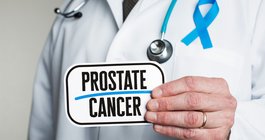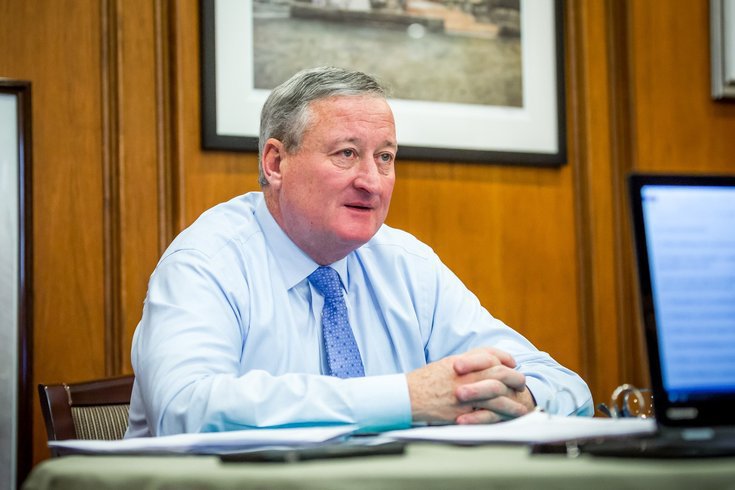
May 06, 2020
 Thom Carroll/for PhillyVoice
Thom Carroll/for PhillyVoice
Philadelphia Mayor Jim Kenney said the city will not make any decisions to reopen the economy that will intentionally sacrifice of the lives of those most vulnerable to COVID-19.
Philadelphia Mayor Jim Kenney responded Wednesday to remarks from former New Jersey Gov. Chris Christie, who said on a CNN podcast that the United States must accept more deaths from COVID-19 as a sacrifice to reopen the struggling economy.
Christie, a 2016 Republican presidential candidate, told CNN's Dana Bash on Monday that the country must reopen soon, even if it means the country could see more than 135,000 deaths by the middle of August. More than 70,000 people already have lost their lives during the pandemic, but social distancing restrictions have slowed and prevented fatalities in recent weeks.
"Of course, everybody wants to save every life they can ― but the question is, towards what end, ultimately?" Christie said during the podcast.
Kenney addressed the remarks in the context of discussion about a protest planned outside City Hall on Friday, in which advocates of reopening the economy are expected to demonstrate in their cars.
"We do not want to take the position that seems to be emerging through the White House, and through people like former Gov. Christie, which was appalling ... we are not going to sacrifice people's lives. There's no such thing as collateral lives. They're all human beings. They're all part of our country, states, cities. We're not going to sacrifice anybody intentionally."
The mayor said the city will handle the protest with respect for First Amendment rights — and will encourage anyone attending to wear masks — but added that the protesters' push for a detailed timeline to reopen is not realistic at this point.
"You can't set a timeline," Kenney said. "The timeline is what the virus dictates, and that's been the case since the beginning. We certainly have target things we'd like to see happen, but unless the data indicates that it's safe, then it's not safe."
A separate protest staged by advocates for the city's homeless population took place Wednesday outside of managing director Brian Abernathy's home, he confirmed during Wednesday's press briefing. The city has been criticized for its response to unsheltered residents during the COVID-19 crisis, during which homeless shelters have had to limit accommodations in order to protect staff and residents.
A homeless encampment has since formed at Philadelphia International Airport during the lull in air travel. While the city is allowing this for the time being, Abernathy has said the situation can't continue indefinitely.
"I share the concerns," Abernathy said Wednesday. "I think we're doing everything we can for our unsheltered population. What they have to deal with on a daily basis without the pandemic is heartbreaking and tragic, and what they're having to deal with (now) is heartbreaking and tragic."
Philadelphia has not opened its quarantine and isolation spaces at area hotels to the homeless population at this point in time.
The city leased a few hundred rooms from the Holiday Inn Express in Center City, the Fairfield Inn & Suites by Marriott in Center City and the Marriott Springhill Suites at the Philadelphia International Airport. The rooms are intended primarily for health care workers, vulnerable people in congregate settings, returning citizens and others in need of safe places to isolate and quarantine as a result of the pandemic.
"We are reviewing our protocols surrounding our quarantine and isolation space on a regular basis," Abernathy said. "If we have to amend our protocols again, we will do that."
Philadelphia health commissioner Dr. Thomas Farley said that the city continues to see progress in slowing the rate of new coronavirus infections.
The city reported 287 new confirmed cases of COVID-19 on Wednesday, bringing the city's total to 16,697. Another 60 fatalities, many confirmed from backlogs, brought the city's death toll to 803, including 424 nursing home residents.
"Our hospitals are seeing a little bit of a reduction in the cases that are hospitalized," Farley said.
City hospitals currently are treating 936 patients with COVID-19, while hospitals in southeastern Pennsylvania as a whole are treating 1,739 people. Both of those numbers are down from yesterday.
Farley also responded to ongoing questions about when he believes Philadelphia will be able to reopen more broadly.
"I can't say because I can't predict the future," Farley said. "We're still learning about this virus. We're still learning about this epidemic. The virus has more surprises in store for us. We're just going to have to see how it goes. I understand that uncertainty is difficult for everybody. That is simply the situation we're in, though."
Still, Farley said that all indications at the moment point to Philadelphia trending in the right direction.
"Our actions are very much slowing the spread of this virus," Farley said. "Our actions are very much saving lives. Right now, we need to simply keep doing what we're doing. That's working."